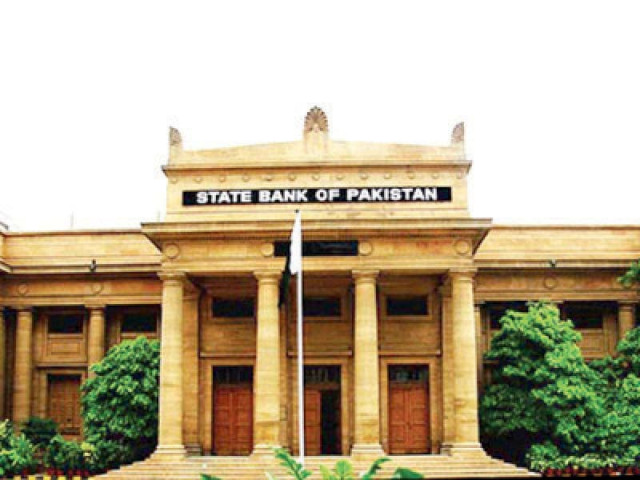Govt proposes changes to SBP Act
Aims to enable dual nationals to hold leadership roles, legalise digital currency

The federal government has proposed amendments to the State Bank of Pakistan (SBP) Act to allow dual nationals to serve as governor and deputy governors of the central bank and to legalise digital currency use in Pakistan. If approved by the federal cabinet and then by Parliament, the use of cryptocurrencies and digital currencies like Bitcoin could become legal tender - a shift from the SBP's traditionally cautious stance on such currencies.
Government sources said the finance ministry has proposed around a dozen amendments to the SBP Act, which the Ministry of Law has vetted. A summary has been sent to the federal cabinet for approval, signalling a shift in the government's approach to financial policy.
The proposed amendments would allow dual nationals to serve as governor, deputy governors, and non-executive directors on the central bank's board, according to sources. This restriction was initially imposed in January 2022, following broad amendments to the SBP Act, which were influenced by the International Monetary Fund (IMF) and the preferences of the former governor. Notably, however, the IMF did not specifically advise the restriction on dual nationals.
The government has proposed an amendment to Section 13 of the SBP Act, which addresses the disqualification of the governor, deputy governors, directors, and members. The current clause disqualifies any person holding dual nationality from serving in these roles. The new amendment proposes to remove the term "having dual nationality" from this section, effectively lifting the restriction.
One of the SBP's deputy governors, Dr Inayat Husain, who is a dual national, is completing his term on November 8. Given his experience and significant role within the SBP, the government is reportedly interested in retaining him for a new five-year term. When Dr Husain was originally appointed, there was no restriction on dual nationals.
Last month, Finance Minister Muhammad Aurangzeb stated there was a limited pool for top positions, suggesting that the ineligibility condition might need revision. "We may need to bring a few things back to Parliament, particularly regarding nationality," he said during a Senate Standing Committee on Finance meeting.
By November 8, two of the three deputy governor positions could become vacant unless the government acts quickly to appoint replacements and amend the law. Dr Inayat Husain and former IMF Senior Advisor Dr Saeed Ahmad - both holding dual nationality or foreign-origin cards - are leading candidates for these positions.
Under current law, the federal government appoints deputy governors based on recommendations from the SBP governor, in consultation with the finance minister, following a list of candidates presented in order of merit.
Legalising digital currency
The proposed amendments introduce, for the first time, the concept of digital currency in the SBP Act. Sources said that until now, the SBP had consistently rejected digital currency proposals and even issued public advisories warning against their use.
The proposed amendments define digital currency as "a digital form of currency issued by the bank under section 24 as legal tender under section 25." Section 24 authorises the SBP to issue banknotes, which are recognised as legal tender under section 25.
Additionally, an amendment to section 4C, which defines the SBP's functions, proposes granting the central bank the authority to issue digital currency. This change would allow the SBP to manage Pakistan's currency "in physical or digital or both forms." The SBP also intends to establish a subsidiary to develop and operate digital payment systems.
The amendments to section 17 authorise the SBP to conduct "central bank digital currency" business, and similar changes are suggested for section 24.
Previously, the SBP had issued public advisories warning the public about virtual currencies like Bitcoin, Litecoin, Pakcoin, One Coin, Das Coin, Pay Diamond and others, clarifying that these tokens were not recognised as legal tender in Pakistan. The central bank highlighted concerns about the anonymity associated with virtual currencies, which it warned could facilitate illegal activities, and noted the lack of legal protection in cases of loss.
The new amendments also propose a penalty for unauthorised digital currency issuance. Anyone found issuing digital currency illegally would be fined an amount equal to twice the value of the illegal issuance.
Expanding SBP board powers
The proposed amendments would also expand the SBP board's powers in approving financial reports. The existing subsection (d) of section 9A would be extended to cover the approval of the SBP's annual report, half-yearly report, reports on the state of the economy, the financial stability report, and financial statements of banks.
Changes to section 9B, which pertains to SBP board meetings, are also proposed. The amendments would allow the board chairperson or three non-executive directors to call a meeting, where previously a "member" was required to do so. This change aims to clarify governance processes.






















COMMENTS (2)
Comments are moderated and generally will be posted if they are on-topic and not abusive.
For more information, please see our Comments FAQ